#the half life of valery k
Text
the thing about natasha pulley is that she can write well but like. every book of hers, the plot is Man Complicit in Atrocities/Pathological Liar Lies To His Amnesiac/Deeply Confused Love Interest
#the half life of valery k#the kingdoms#the watchmaker of filigree street#havent read any of her other books but uh.#same central relationship in three different fonts lol
56 notes
·
View notes
Text
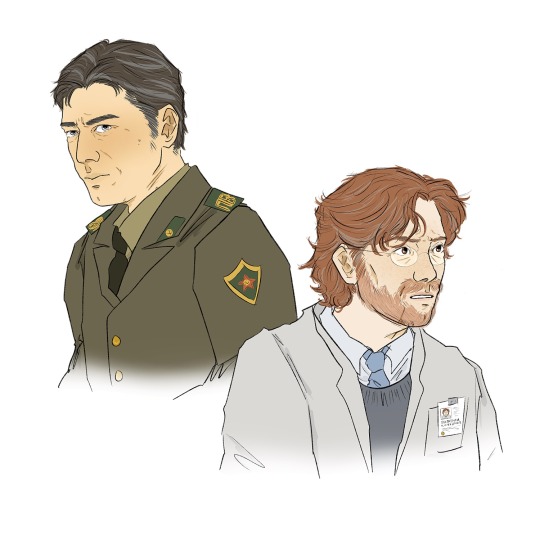
It was well conceived in theory
But it doesn't work in life
Comrade has to wonder
Is it ever worth the effort?
#the half life of valery k#natasha pulley#valery kolkhanov#konstantin shenkov#.m#I’ve got a lot of complicated feelings about this book but for the most part I really enjoyed it#(and I especially enjoyed THEM 😭)
60 notes
·
View notes
Text
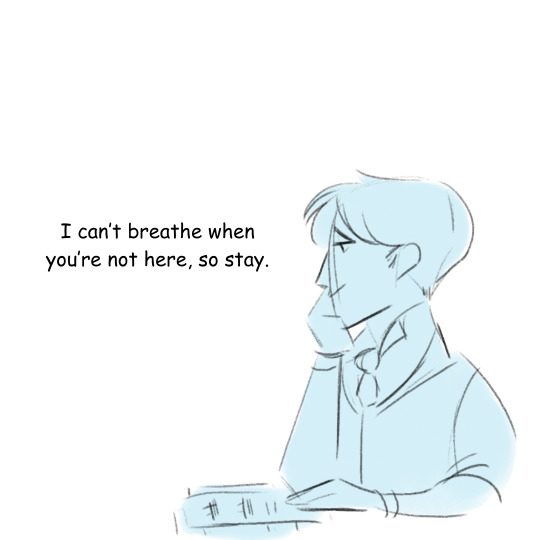
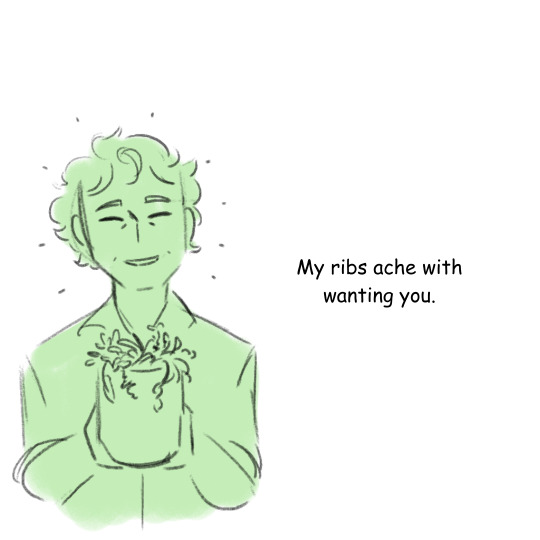

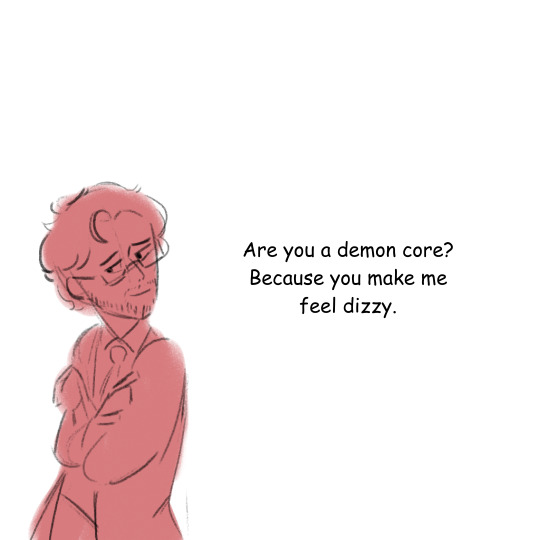
pulleyverse valentines day cards
#i had to make these QUICK#imma be a little late#but i had to make them#my art#fanart#art#natasha pulley#the watchmaker of filigree street#the lost future of pepperharrow#the bedlam stacks#the kingdoms#the half life of valery k#january themarshouse - I might not be in your political party but how about i party with you tonight (had to steal this one)
61 notes
·
View notes
Text
Every Natasha Pulley book ever:
Bulky Man is unintentionally bulky, he's just sort of stronger than everyone because that's the nature of his life. Everyone assumes Bulky Man is violent because of his girth, but he actually hates violence and is really just the nicest little dude inside.
Fragile Dude is little and/or easily breakable. Fragile Dude is brilliant and/or powerful. He too is pretty nice, but he's probably had to use his intellect and/or power to commit some kind of atrocity in the past that he will be attempting to keep secret over the course of the story. This will be revealed 3/4 of the way through the book, but the circumstances surrounding the atrocity will be so horrible that everyone will agree it was probably justified.
Bulky Man and Fragile Dude are both dissatisfied with their lives to some extent.
Bulky Man and Fragile Dude meet through a series of unlikely and often unfortunate events.
Bulky Man and Fragile Dude are forced to work together in some capacity.
Bulky Man and Fragile Dude are both a little bit afraid of the other, but there's also some quality that they really like or respect in the other nonetheless.
Bulky Man and Fragile Dude continue to work together, but now they're starting to reluctantly take a liking to the other. Neither of them realize that the other actually likes them though.
Bulky Man and Fragile Dude have had to help each other out of some sticky situations by now. They're clearly head over heels in love these days, but circumstance and/or society is keeping them from acknowledging it. People have started to hint to Bulky Man that Fragile Dude is actually super shady, so you better watch your back. Bulky Man doesn't really care that much at this point, but he's like, I guess I better look into these accusations.
(Some kind of cute but unusually intelligent animal is usually involved with the plot and/or their relationship by this point. Also, there's at least one loveable child character that usually helps the characters bond.)
Bulky Man and Fragile Dude have a nice, cheerful break from all of the traumatic events they've been experiencing, which inevitably ends in a romantic encounter.
Because of communication issues or societal issues, both chraracters still don't actually believe the other character loves them, and they both act like it was just a one off thing and an accident and that everything is totally fine.
Things are awkward between Bulky Man and Fragile Dude, but the traumatic events have really fired up again so they still have to work together. Plus, they're both just that desperate to be together, even though they think the other character hates them now.
Bulky Man finds out Fragile Dude's secret, but usually he doesn't get it quite right or he's missing some essential information. Bulky Man is temporarily horrified of Fragile Dude. Bulky Man chides himself for being so desperate for affection that he fell in love with some kind of psycho.
At this point, either Bulky Man makes a stupid mistake while being horrified or circumstances just happen to suddenly get a lot worse or both. Bulky Man and Fragile Dude are physically separated, often by force and some kind of authority. At some point in here, Bulky Man realizes he was wrong about Fragile Dude.
A slapdash plot is hatched to save the stolen love interest. Usually Bulky Man has to save Fragile Dude, but occassionally the script is flipped.
Ultimately, the stolen love interest is rescued, though it was a real close thing at some point. The Day is saved, usually through murder/s, caused by a combination of Bulky Man reluctantly bashing some heads in and Fragile Dude using his wits and/or power to get the right people killed. Often, our protagonists are then forced to straight up run away from the Bad Times, leaving their lives and families behind. (The loveable child from earlier will either be tragically left behind or adopted by the now happy couple.)
Bulky Man and Fragile Dude are a little bit sad at the things they've lost along the way, but mostly they're going to live happily ever after.
#natasha pulley#the watchmaker of filigree street#The lost future of pepperharrow#the bedlam stacks#the kingdoms#the half life of valery k#the mars house#thaniel steepleton#Keita mori#Merrick tremayne#Raphael (the bedlam stacks)#Joe tournier#missouri kite#Valery kolkhanov#Shenkov#January stirling#Aubrey gale#River gale#books#bookblr#mine
32 notes
·
View notes
Text
i miss valery kolkhanov when is valery coming back. please i need to tell him about No Gender On Mars
#valery kolkhanov#the half life of valery k#where is my nonbinary paper-boned icon#he needs to KNOW#him and gale in a room together ……. how dare the 1960s and Martian year 250~ be so far apart
35 notes
·
View notes
Text
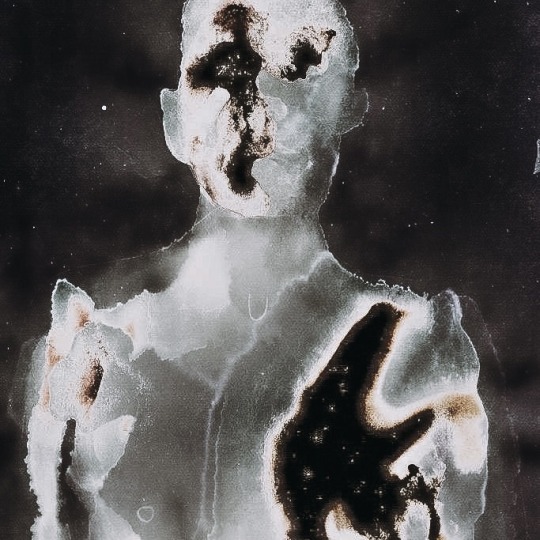
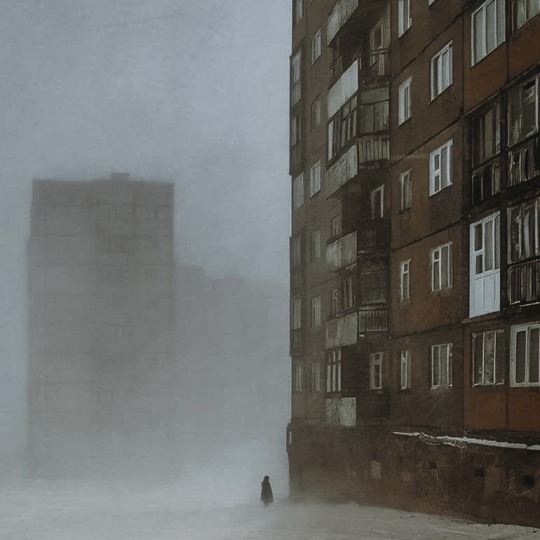



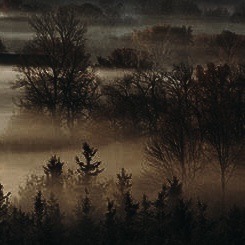
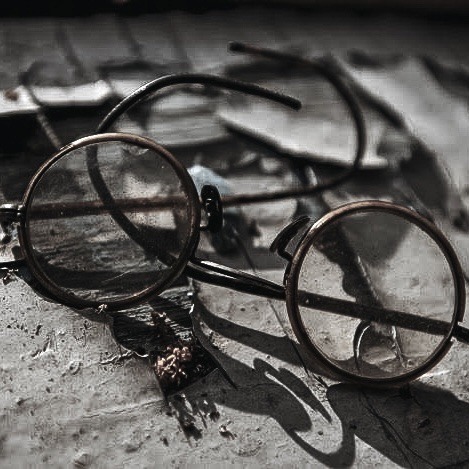

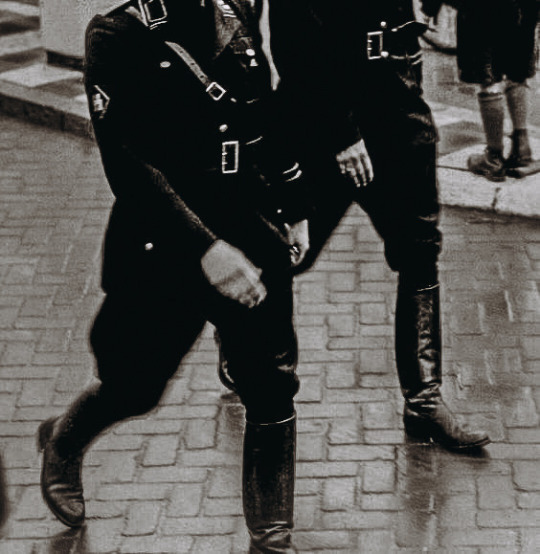
books I’ve read in 2023 📖 no. 137
The Half Life of Valery K by Natasha Pulley
“I keep hearing all this about radiation, but frankly, comrade, if I can't see it and it doesn't bite, I'm not that worried."
62 notes
·
View notes
Text
been on a natasha pulley kick recently, and i’ve been thinking about that moment when shenkov essentially asks valery for permission to put milk in his coffee. i think it says a lot about his general position in the concept of rebellion. because shenkov himself does not seem to find milk in his coffee effeminate, and even if he did he doesn’t show any particular signs distaste for it or even much of any general internalized homophobia, only a healthy caution of being caught.
and yet he has never drunk his coffee with milk in it.
he’s not the type to rebel against authourity, the only way he knows how to challenge it is by bending around it. he doesn’t believe that the institution is ‘inherently good with a few flaws or bad apples’ but the only way he can imagine changing it is by joining it. or how, whilst we never get a super clear view on his sexuality or whether there ever was actual romance between him and anna, he does settle into seeming heterosexuality and a nuclear family.
this is in contrast with valery, who spends the entire novel questioning authority far more than what is probably smart. valery, whilst not an outright rebel or activist, doesn’t make this conscious choice to settle into patterns and expectations. to some extent, shenkov clearly views him as someone who challenges the powers that be, even if he does just about stay within the limits so that shenkov doesn’t have to take action against it. shenkov’s whole arc is going from this passive ‘smelt in and attempt to make change from the inside’ attitude to rejecting the system as a whole, and he does so by following valery’s lead. that’s why he asks him for permission to put milk in his coffee and as such challenges the oldest authority he’s ever known: his own father.
#honestly it was a good while since i got this invested in a set of books#read this one in like three days#though to be fair i was also on two six hour flights and had nothing else to do#natasha pulley#pulleyverse#the half life of valery k
58 notes
·
View notes
Text
Pulleyverse Characters as ATLA Benders
Mori: If any one of the pulleyverse characters were to be the avatar it would definitely be Mori, but if he weren't the avatar I think he would be an earth bender who specializes in metal bending. Like I think he would have so much fun making little metal sculptures and moving structures and stuff like that, not unlike the Beifongs in LoK. So combining those ideas, he'd be an avatar born in the Earth Kingdom who very much does not want to be the avatar.
Shenkov: He's definitely a fire bender, no question. He has that classic fire bender strength and honor routine basically engrained in him from a young age, and I feel like he could be pretty accomplished as a fire bender, but again he probably wouldn't want to do much fire bending. He'd kinda be like an Iroh situation; was and could be the strongest person in the room if he let loose, but all he really wants is some tea.
Joe: Water bender, and a damn good one too. He really mastered the calm meditative nature required of a water bender, (the man stared blank faced at a ticking bomb two feet from him, for Christ's sake) but he can also be really ruthless about it too. I don't necessarily think he would be a blood bender or anything like that, but he would definitely be able to pull the freezing rain thing like Katara.
Missouri: He would also be a water bender for the same reasons as Joe, but I think he would in fact be a blood bender. In the world of ATLA, blood benders are very widely feared, and for good reason, and I think Missouri would absolutely be capable of using something like blood bending to instill fear in people. He wouldn't like doing it of course, but he could and would if necessary.
Gale: They're very much an air bender. They're very calm and meditative when they need to be, and that is how they prefer to be, but they could definitely pull a Yangchen and just go buckwild if they needed to. And I feel like of all the pulleyverse characters, they're the least attached to their "earthly desires" (and that is relative bc none of these mfs are detached at all). Plus imagine them having a fuckin MAMMOTH as their little companion buddy instead of a bison!!! A big ass flying mammoth!!!
Valery: I honestly think Valery would be a non bender. He's all for science and everything like that, and of course benders can be scientists, but I feel like he would spend a lot of time studying what makes people able to bend instead of being a bender himself. If I were to choose one element for him I would probably choose fire, but at the end of the day it makes the most sense to me if he were more interested in studying bending.
Merrick: Earth bender. There is no other answer for him that earth bender. He's very grounded and stable in his character, but also undeniably strong. His arc about overcoming the "weakness" he feels after his leg gets messed up honestly is very reminiscent of Toph to me, and I feel like he would absolutely take the time and learn from the creatures of the earth to become an incredibly powerful earth bender. Also adding in him being a mentor for Mori and it's just >>>
Raphael: I feel like he would also be an earth bender tbh. Like he just so ardently respects the land he lives on and constantly learns from his environment to adapt, especially considering he can't always rely on the people around him, so he would turn to learning from the world around him. If I were pressed to choose another one I think he could also fit into the fire bender role, but I prefer the earth bender interpretation tbh.
January: He honestly could be a non bender too, but the Sokka kind of non bender who takes the time to learn actual fighting moves from all of the nations and become just an incredibly powerful fighter on his own. I feel like he would be especially inspired by air nomad moves being a dancer and all, and that would be the way he bonds with Gale which I think is vvv cute.
Thaniel: he has stumped me this entire post, which is very odd considering I think about this man at least five times a day, and the best conclusion I think I've drawn is he'd either be a non bender or an earth bender. So probably then a non bender born in the earth kingdom, because he does embody the earth kingdom ideals of maintaining outward strength and balance in life, but not necessarily the actual ideals of an earth bender. And tbh he seems like he couldn't give less of a fuck about bending.
#this took me longer than expected and I reserve the right to change my answers later#the way I normally make these posts is by stewing on the ideas throughout the day and then putting all of my ideas out in a mad dash#it is to quote the mars house 'projectile autism'#but I was asked personally this morning to make this and I don't have a lot of time today so this is what we're rocking with for now#and I'd happily do it again bc I love making these and I love atla#the watchmaker of filigree street#the lost future of pepperharrow#the bedlam stacks#the kingdoms#the half life of valery k#the mars house#twofs#tlfop#tbs#tk#thlovk#tmh#natasha pulley
24 notes
·
View notes
Text
since there’s a new pulley book out now…
#natasha pulley#twofs#the bedlam stacks#tlfop#the kingdoms#the half life of Valery k#the watchmaker of filigree street#polls#I meant to schedule this but I picked the wrong date so whatever#Reblog for reach or whatever#the mars house#the lost future of pepperharrow
20 notes
·
View notes
Photo
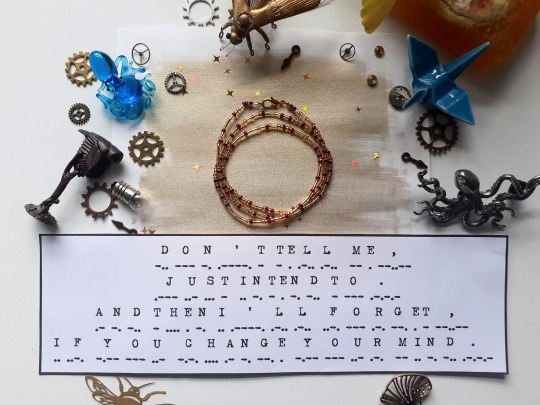
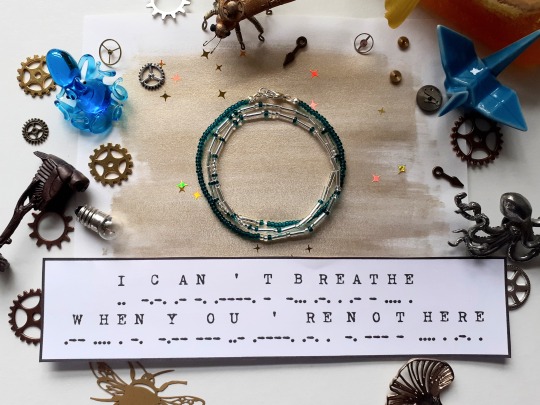


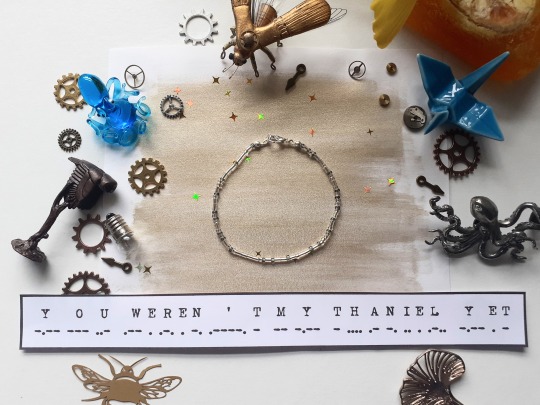
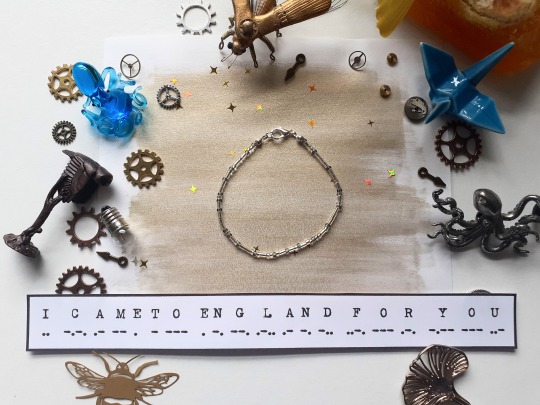
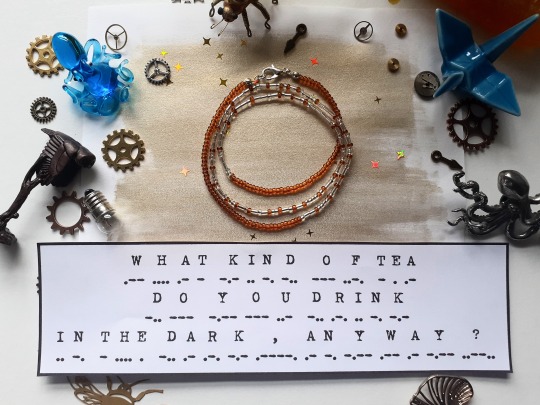
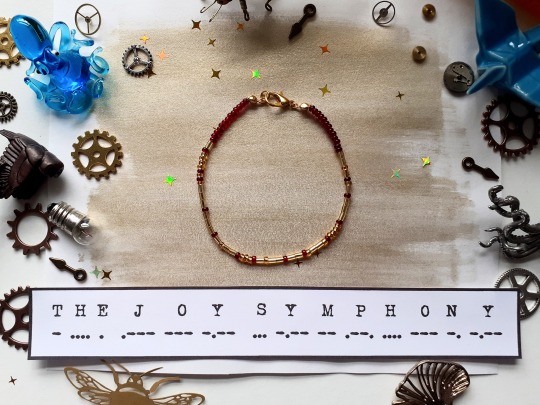

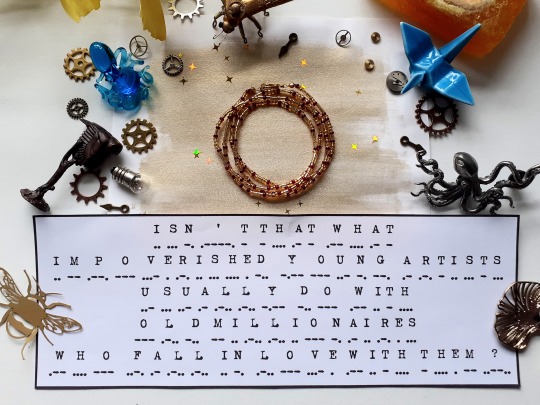
In honour of a certain clairvoyant’s birthday 🐙
Morse code jewellery inspired by The Watchmaker of Filigree Street and The Lost Future of Pepperharrow.
Bonus for everyone who, like me, would die for Six because they were Six:

#these books own my soul thaniel and mori destroy me on a daily basis#if ur in the fandom pls come yell at me about them!!#these were extra fun to make bc of the morse code in the books#natasha pulley#the watchmaker of filigree street#the lost future of pepperharrow#thaniel steepleton#keita mori#six steepleton#katsu#grace carrow#akira matsumoto#pulleyverse#the bedlam stacks#the eel singers#the kingdoms#the half life of valery k#the mars house#photos#morse code#amorseart
112 notes
·
View notes
Text
i've been reading natasha pulley's books and the first time i found out there was a middle-aged, gay, and probably autistic character, i was pleasantly surprised at what i thought was a one-time occurrence. but i've started another of her books and apparently this is normal in her writing?? yeah i'm now buying all her books
62 notes
·
View notes
Text
Good morning to buff working class Englishmen, Japanese clairvoyants, autistic lightbulb collecters, girls who will cause problems to get what they want, clockwork octopi, theater majors, the owls, disabled botanists turned smugglers, Gulliver, statues, lighthouse engineers who go oopsies when they forget stuff, deeply repressed gay redheads (nautical), surgeons who like to spread rumors for funsies, deeply repressed gay redheads (russian), the kgb, girls who like to wear red shoes and believe in "the ends justify the means", bald girls. and the enby martians.
#tag yourself#the watchmaker of filigree street#twofs#the lost future of pepperharrow#tlfop#the bedlam stacks#tbs#the kingdoms#the half life of valery k#the mars house#natasha pulley
114 notes
·
View notes
Text

....and then the love interests
#my art#fanart#art#natasha pulley#the watchmaker of filigree street#the lost future of pepperharrow#the bedlam stacks#the kingdoms#the half life of valery k#the mars house#sketch
37 notes
·
View notes
Text
Womanhood as a prison in Natasha Pulley novels
I know that a great deal has already been said about Natasha Pulley’s portrayal of female characters, because even her most ardent fans (and I count myself among them) are often highly critical of how women are written in her stories - or, more aptly, written out of them.
But I think there is more to be said about how not only female characters are presented, but how the very concept of femininity is portrayed, via both the characters’ dialogue and inner thoughts. This analysis will reference all of Pulley’s books with the exception of The Bedlam Stacks. I’m excluding it on the grounds of it having little to no major female characters, but if any Bedlam superfans have any insight to add, please do reblog and contribute.
One of the main criticisms of Pulley’s women is their overarching similarity, so let’s briefly consider those commonalities. They are mostly educated, career-driven scientists (Grace is a budding physicist, Agatha a surgeon, Anna a much more experienced physicist). They are usually unnattractive by conventional standards; Grace is described as looking ‘like a boy’, Pepperharrow refers to herself as being ugly, Agatha is ‘tall and flat-chested’, and Anna’s introduction mentions that she has a ‘blonde buzz cut’ and is somewhat overweight.
They are also generally emotionally cold and poor caretakers, especially in contrast to the male characters. Joe’s wife, Alice, is noted to resent their daughter and engage with her far less than he does. Similarly, Shenkov is significantly more child-orientated than Anna. Agatha forces Missouri to watch a man having his throat cut, because she believes him too gentle for war. Said female characters may also show distaste for softer, more vulnerable women. Takiko Pepperharrow speaks of her mother like this (The Lost Future of Pepperharrow, p. 72):
Saying yes and simpering all the time was silly - her mother did that and even noticeably anxious ducklings walked over her mother
She isn’t the only person to speak of her mother with a degree of pity and distaste. Grace claims that to argue with her own mother feels like ‘slapping a kitten’ - Mrs Carrow is presented as too meek to understand her own powerlessness, to the point that she considers it an achievement to leave the house alone. In the epilogue of The Half Life of Valery K, Valery himself describes the pitiable housewife Cecilia as being ‘just as stunted as his own mother’. Similarly to Mrs Carrow, the aforementioned Cecilia is not presented as fully aware of how small and restricted her life is - her happiness rests on the outcome of a dinner party, nothing larger than that.
The common thread between these pitiable characters is that they embody traditional womanhood - they are married, they are subservient to their husbands, and they have children. Perhaps the most notable - and interesting - trend amongst Pulley’s female charcters is that they invariably have a complicated relationship with marriage, caretaking, and/or childbearing.
Pulley’s novels frequently frame motherhood (along with other traditionally feminine pursuits and behaviours) as an obstacle to the female characters’ goals. In conversation with her mother, Grace talks about the prospect of marriage in the following way (The Watchmaker of Filigree Street, p. 102):
“Wives have duties. If I have children I’ll go insane for a year and a half - don’t look like that, you did, with James and with William, it was terrifying - and that will be a year and a half of weeping over nothing and a brain made of soup in which I can’t work. And then it will happen again with the next child, and then slowly I won’t want to work at all, and I’ll always be soup...”
In Grace’s mind, having children is a barrier to her academic pursuits. She is fiercely certain that giving birth will not only reduce her brain to ‘soup’, but that the impact will be permanent - she will lose herself to motherhood, and it will take away her drive and her intellect. Similar sentiments can be found among other female characters, such as when Takiko observes the following (The Lost Future of Pepperharrow, p. 175):
All her sisters had had children, and all she’d learned from it was that people with children turned inward. She didn’t see any of them anymore.
Once again, there is the sense that motherhood steals from women. It takes them away from themselves by turning them inward, and also from other people in that they lose contact with family members. The Half Life of Valery K foregrounds Anna’s perspective on motherhood (p. 137), which is probably the most extreme of all:
..she had told him straight up when they got married that she wasn’t a natural mother, that she didn’t do well with small helpless things, because she had been trained to care about electron microscopes, thanks, and obviously she would gestate him a small helpless thing to look after if he wanted [...] but there would be no talk of staying home, nesting, or maternal fussing, because frankly that was nothing but weakness of character in a woman...
A significant part of this passage is the notion that Anna is not a natural mother because she has ‘been trained to care about electron microscopes’. Not only does this again put scientific pursuits and childrearing in opposition (you may care for one, not both), the verb ‘trained’ suggests that this behaviour is learned, as though she has been educated out of maternal desires.
At this point in the analysis, I would like to specify that discussing these ideas in fiction is not inherently problematic or anti-feminist. It is vitally important for women to be free to reject motherhood, and by extension it is good to see female characters who are unapologetically unmaternal and unfeminine. When I first read The Watchmaker of Filigree Street, I adored Grace’s character for this - I loved her arrogance, her stubbornness, her distaste for marriage, her coarseness. Even the fact that she looked down on other women made her fascinating to me, because we just don’t see a lot of multi-faceted female characters who act in this way. She was complex and interesting without being a Strong Female Character™ to look up to - she was allowed to be wrong and wildly dislikable.
Where I take issue, however, is the fact that we have never seen an alternative to Grace in all five of Natasha Pulley’s novels. She is yet to write a significant female character who is complex and important despite being more traditionally feminine - there are no women who are scientists and dedicated mothers, who are career-minded and gentle, who are fiercely independent and hopeless romantics. It is one thing for Grace and other characters to disparage the poor, oppressed housewives in their society, but it is another thing entirely for the narrative itself to disparage these women. A woman without an education is still a fully-realised person with her own internal life. Women who cannot attain much agency are still as complex as those who can, yet Pulley’s stories never quite acknowledge this.
Which leads me onto the overarching portrayal of womanhood in Pulley’s novels. I’ve always been hesitant to assume too much based on singular characters, as I do think it’s imporant to recognise that a character’s perspective is not a proxy for the author’s. But after five books, the patterns are undeniable, and I think they’re more marked in The Half Life of Valery K than they ever have been. Consider the quotation below, taken from p. 30:
[Valery] never knew what to say when women pointed out that they were women and that it was, generally, awful. There was a knee-jerk human instinct to say it couldn’t be as bad as all that, like he would have to anyone who was feeling blue, but it was one of those instances where it really was awful, and trying to say it wasn’t was somewhere on the spectrum between stupid and criminal.
Valery offers an invariably bleak perspective on womanhood, which is in keeping with the attitudes of the female characters in Pulley’s books. Not only is womanhood described as miserable - Valery also claims that to deny the truth of this is either ‘stupid or criminal’. There is no space to take a more positive view on femininity.
Being charitable, we could view this as a (heavy-handed) condemnation of sexism and patriarchy, and I do think that this is Pulley’s intention. But it’s worth considering that she does not discuss other marginalisation in this way. Despite the homophobia her numerous queer protagonists face, nobody goes on a similar tirade about the misery of being a man who loves other men. The trials and struggles are acknowledged, but queer love is still rightfully shown to be beautiful and privately joyous - in a way that being a woman never is.
Instead, womanhood in Pulley’s novels is oppressive and inescapable. Even a young girl’s fingernails cannot be neutral - they too represent the trappings of patriarchy (The Half Life of Valery K, p. 274):
“I can’t do it,” Tatiana said to her own laces. She studied her fingernails. “My tools of the patriarchy are getting too long.”
(This is an utterly bizarre thing for a little kid to say, by the way).
Towards the end of the novel, a carriage full of female prisoners is set upon by male ones, which is portrayed almost as an inevitablitity - we do not get a scene of exactly what happens, because the outcome is obvious enough to be implied. This outlook on the inevitability of violence against women is never challenged at any point; Valery only emphasises it in the final pages of the novel (p. 369):
every doctor he worked with and laughed with in tea breaks probably had an identical wife, all of them keeping women like bonsai trees
The messaging across Pulley’s novels is that of womanhood as a prison. There is little to no joy to be found in it; it results in confinement, loss of the self, isolation from others, and exposure to physical and emotional violence. Women who ‘succumb’ to marriage and children are given little voice in her stories - they are pitiable, ‘identical’ lost causes, called ‘stunted’, compared to kittens and bonsai trees. The only female POVs are that of women rebelling against conventional femininity, who are ambivalent or outwardly resentful towards caretaking, childrearing, and reliance on others. And even these women do not get to take up a great deal of space; all of them serve as obstacles to the central romances and all of them are written out to secure the male characters’ happily ever afters.
I do not believe that Natasha Pulley has malicious intent in how she writes female characters. It is important to address misogynistic violence and the ways in which the institution of marriage has restricted and oppressed women, and I believe she does try to do that. But there are ways to explore this issue whilst still acknowleding the variety of women’s experiences - and, crucially, showing that there is more to femininity than suffering.
But it requires time and space. Natasha Pulley has no hope of doing this if she does not start deviating from her usual archetypes - her stories need a better quality and quantity of women. While I live in hope of improvements to her female representation, I would be lying if I said I was optimistic.
#natasha pulley#the watchmaker of filigree street#the half life of valery k#the kingdoms#the lost future of pepperharrow#i wrote this instead of doing my actual job this afternoon#I just couldn't. stop. thinking about it#my friend finished reading the kingdoms yesterday and we ended up talking about the huge Weirdness of her female rep#and the more I looked back over valery k the more i think that book has such a STRANGE presentation of women and gender as a whole#the fact that it almost tries to pass itself off as feminist (in such a heavy handed way too!) while shafting the female characters is just#not good chief#long post
202 notes
·
View notes
Text
Ok another poll-ey:
(please read all the options before voting as there are similar options)
Specify in notes if you want!
#poll#natasha pulley#Natasha poll-ey#the watchmaker of filigree street#the bedlam stacks#the lost future of pepperharrow#the kingdoms#the half life of valery k
56 notes
·
View notes
Text
2023 Reading Wrap-Up
Is it February of 2024? Yes! Am I still going to post my favorite books that I read in 2023? Also yes!
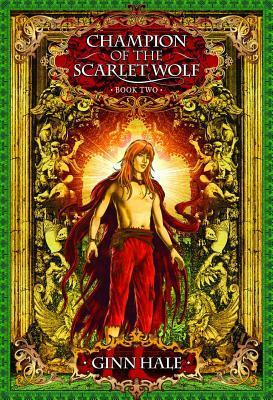
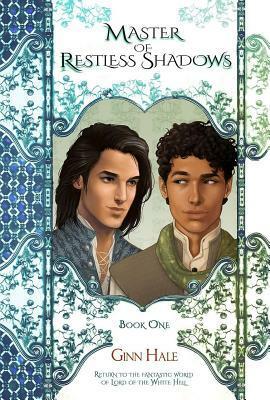
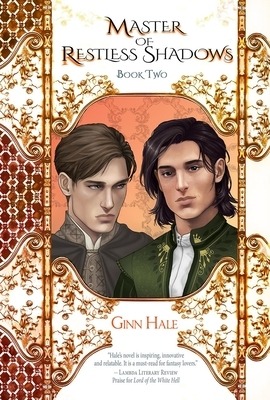
Ginn Hale's Cadeleonian Series, the second half of which I read in 2023: Champion of the Scarlet Wolf, Book Two; Master of Restless Shadows, Book One; and Master of Restless Shadows, Book Two
This series begins with Lord of the White Hell and continues with Champion of the Scarlet Wolf, then concludes with Master of Restless Shadows. Each duology follows a different set of characters, but it's a true series so you need to read them in order. It's a toss-up for me whether I preferred Champion of the Scarlet Wolf or Master of Restless Shadows. Both are fantastic duologies. I particularly loved getting Atreau's story in Master because he's sort of an unlikable playboy-esque character in the preceding books...but wait! Turns out there's more to him after all.
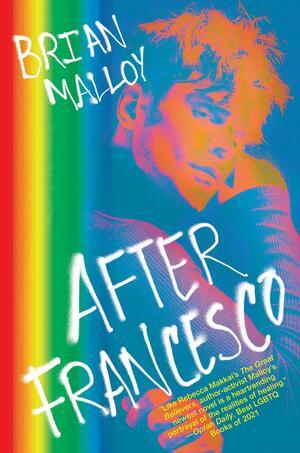
After Francesco by Brian Malloy
Who would think a book about living through the AIDS epidemic in NYC in the 80s would be as funny as this book is? It will also tear your heart out and stomp on it. Also takes place partly in Minneapolis (and is by a Minnesotan author).
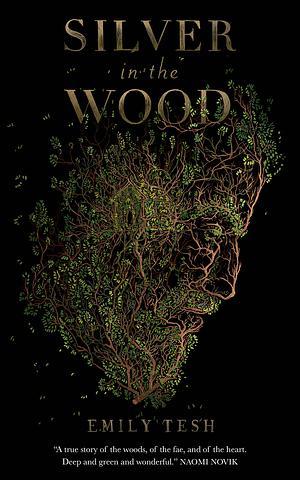
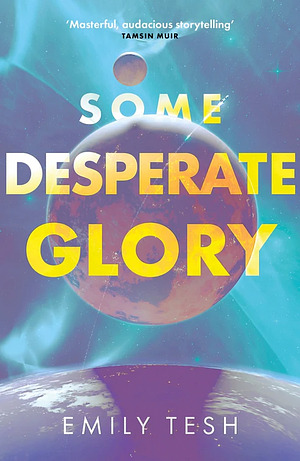
Silver in the Wood by Emily Tesh
Folklorist meets the Green Man and they fall in love. This is the first half of a duology, the second being Drowned Country, which I just finished today so can't included it on my 2023 wrap-up. All the dark and violent whimsy of the mythic past and the most brutal versions of fairy tales, plus a lovely romance.
Some Desperate Glory by Emily Tesh
Imagine the love child of Lost, Person of Interest, and Battlestar Galactica, but queer and with multiverse shenanigans thrown in (the author has cited Ender's Game as a huge influence). I don't want to say anything more than that, because I feel strongly that you need to go into this book knowing nothing. The twists and turns are so good, the main trio are wonderful, complicated characters, and the world is super cool.
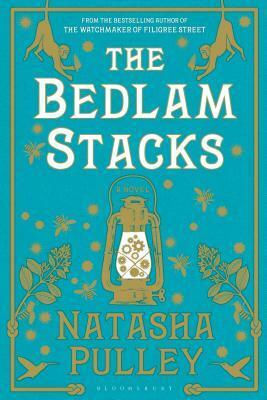
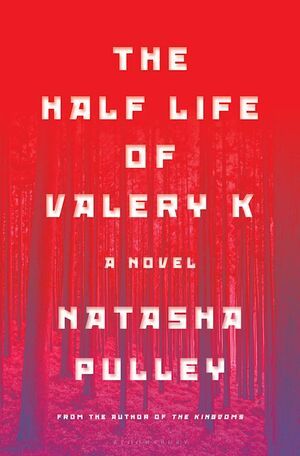
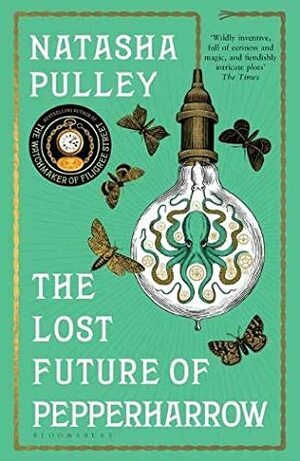
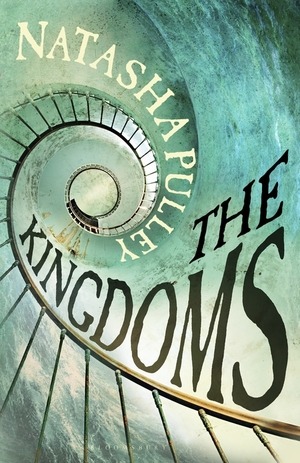
The Bedlam Stacks by Natasha Pulley
In some ways the most heartbreaking of Pulley's novels. Also probably her most dreamy and magical. It's my least favorite of her books, but my least favorite Natasha Pulley book still ended up on my best of 2023 reading list.
The Half Life of Valery K by Natasha Pulley
This book awakened in me a latent love of Soviet queers. You'll see this book filed under sci-fi by booksellers, but it isn't really—it's historical fiction about a very real nuclear disaster in the USSR that was covered up for decades. Like all of Pulley's books, the characters are deeply complicated and flawed. The pleasure is really in reading the way she tells a story and her beautiful use of language, so even if you're not interested in Soviet nuclear disasters, I absolutely recommend you read this. Also, you'll probably be interested in Soviet nuclear disasters when you're done.
The Lost Future of Pepperharrow by Natasha Pulley
Haha, you thought The Watchmaker of Filigree Street punched you in the chest with feels? Get ready for the sequel, which will have you Curled Into A Sobbing Ball On The Floor™. Join Thaniel Steepleton, Keita Mori, and their adopted Waifish Victorian Orphan, Six, as they go to Japan, where things are weird, there are ghosts, and Thaniel and Mori still somehow don't understand what they mean to each other.
The Kingdoms by Natasha Pulley
"What if France won the Napoleonic Wars because of time travelers" shouldn't have shattered me the way this book did, but of course it's a Natasha Pulley novel so it absolutely did. Missouri Kite is the most Gay Little Man™. And Joe, poor Joe. The PINING. The YEARNING. When the reveal happens, I had to go back and read prior sections of the book and good god do they hit different. Different and SADDER. This book is my favorite of Natasha Pulley's novels.
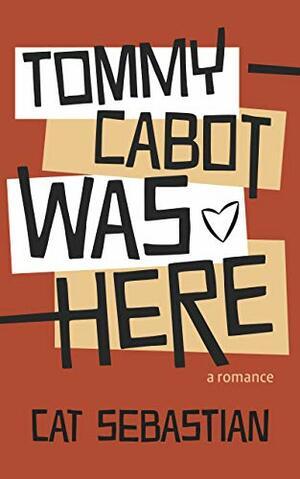
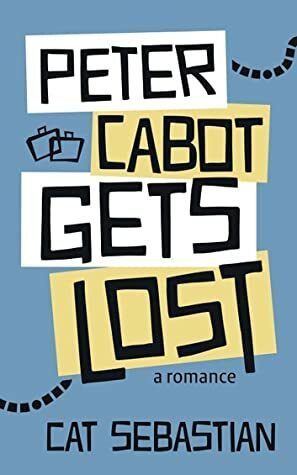
Tommy Cabot Was Here and Peter Cabot Gets Lost by Cat Sebastian
The first two books in Cat Sebastian's The Cabots series. The books are historical fiction that follow various queer men in the Cabot family. The Cabots are one of those old money, liberal New England families—think Kennedys. Both books are about Sad Gay Men™ finding love in soft, tiptoeing Cat Sebastian fashion. Peter Cabot is a road trip romance and a bit longer, so the characters have some time to breathe.
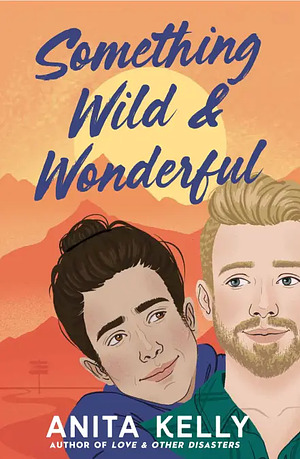
Something Wild & Wonderful by Anita Kelly
This was probably a Stucky fic at one point, right? I mean. No shade though, truly! This was my favorite romcom that I read in 2023. It was also a comp for Strangers to Husbands, haha. I love the setting—hiking the Pacific Crest Trail—and I love the main characters, Alexei and Ben. Alexei came out to his family recently and got rejected, while Ben is from a big, accepting Portuguese family. Funny, touching, and an excellent love story.
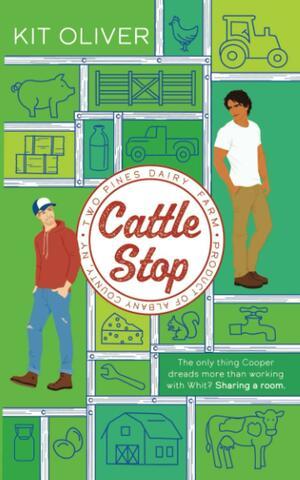
Cattle Stop by Kit Oliver
Looks like a romcom but will stab you in the heart repeatedly. Kit Oliver has a gorgeous way with words and captures the dynamic between two people who have no idea how to talk to each other so well. I'm also a sucker for farm settings.
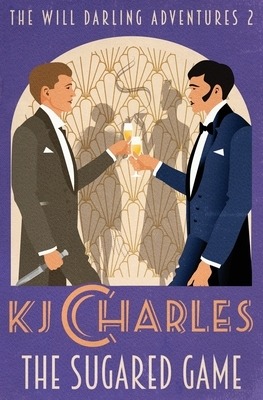
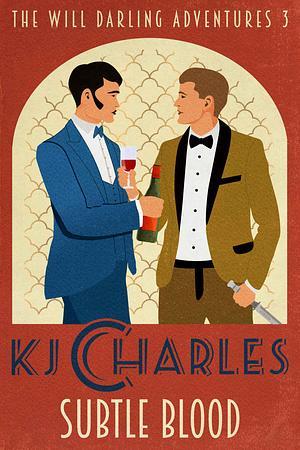
The Sugared Game and Subtle Blood by KJ Charles (The Will Darling Adventures)
I've read almost all of KJ Charles's books at this point, but the Will Darling Adventures are my favorites (I read the first book in the series in 2022). I love the combination of romance and action/adventure. I've never met a m/m book set in the interwar period that I haven't loved. Will and Kim are wonderful characters, and sometimes I think about what other adventures they had after book three ended.
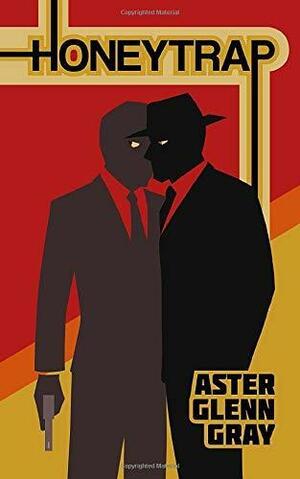
Honeytrap by Aster Glenn Gray
An FBI agent and a GRU agent get assigned to work a case together in 1959 and they fall in looooove. There's a road trip, a family dinner, and FEELS. I'm not sure I've ever had a time skip hit me in the gut so hard. Remember how I said I love Soviet queers? Here's another example.
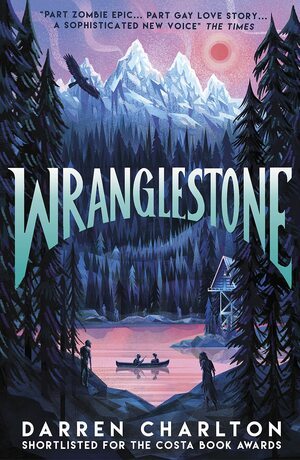
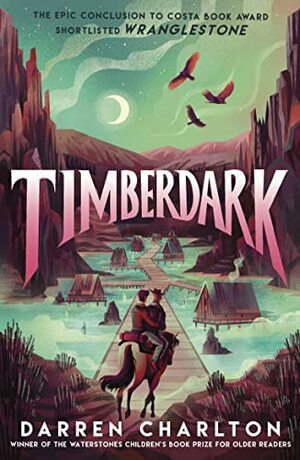
Wranglestone and Timberdark by Darren Charlton
What if the real dystopia isn't the zombie apocalypse, but "normal" life? I don't know if I've ever read a YA series that sucker-punched me as hard as this one. I know I've never read a zombie book that sucker-punched me as hard as this one. I don't think these books have even been published in the US (only in the UK), but if you can get your hands on them, they're worth it. Really beautifully written in a style that evokes the emptiness of the great national parks of the American west.
Honorable mentions:
The Charioteer by Mary Renault
The Scottish Boy by Alex de Campi
A Power Unbound by Freya Marske
#wranglestone#timberdark#darren charlton#honeytrap#aster glenn gray#kj charles#sugared game#subtle blood#cattle stop#kit oliver#something wild and wonderful#anita kelly#the cabots#cat sebastian#natasha pulley#the bedlam stacks#the half life of valery k#the lost future of pepperharrow#the kingdoms#some desperate glory#emily tesh#silver in the wood#after francesco#brian malloy#ginn hale#champion of the scarlet wolf#master of restless shadows#reading tag
21 notes
·
View notes